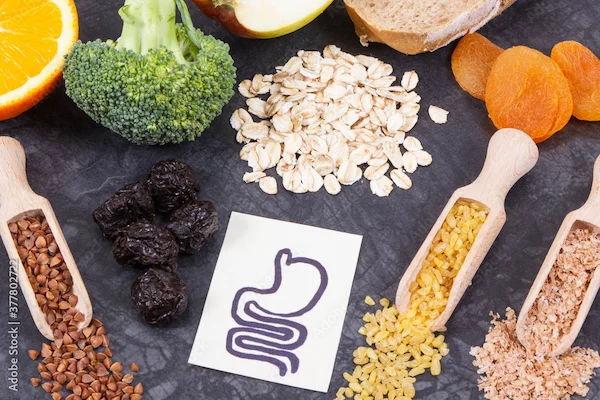Guide to Tips for Preventing Gastric Problems in the Monsoon
Learn how to prevent common gastric problems during the monsoon season. Discover effective diet tips, home remedies, hygiene practices, and lifestyle habits to keep your stomach healthy.

Written by Dr. M L Ezhilarasan
Reviewed by Dr. Dhankecha Mayank Dineshbhai MBBS
Last updated on 13th Jan, 2026

Introduction
The pitter-patter of rain, the petrichor, and the cool breeze—the monsoon season is a welcome respite from the scorching summer heat. However, it also brings with it an uninvited guest: a heightened risk of gastric problems. From that occasional bloating and acidity to more severe stomach infections, our digestive system becomes particularly vulnerable during these humid months. This surge in gastric issues is primarily due to factors like increased humidity slowing down our digestion, contamination of water and food sources, and a general dip in immunity. But this doesn't mean you can't enjoy the season! This comprehensive guide will walk you through the causes, prevention strategies, and effective remedies to help you tackle monsoon-related gastric distress head-on. Let's ensure your gut health is as robust as your love for the rains.
Understanding the Monsoon-Gut Connection: The Root Causes
To effectively prevent gastric problems, it's crucial to understand why they are so prevalent during the monsoon. It's not a coincidence; it's a perfect storm of environmental and biological factors.
High Humidity and Slower Digestion
The high humidity levels during monsoon cause the body's digestive fire, or metabolic rate, to slow down. According to Ayurvedic principles, the "Agni" or digestive fire becomes weak. Scientifically, the body diverts energy to regulate temperature in the humid weather, which can lead to reduced enzymatic activity in the gut. This results in slower digestion, making you feel heavy, bloated, and prone to indigestion after meals.
The Danger of Contaminated Water and Food
Stagnant water is a breeding ground for pathogens like bacteria (E. coli, Salmonella), viruses, and parasites. These contaminants easily seep into water supplies or are sprayed onto fruits and vegetables. Eating raw salads from outside, drinking untreated water, or consuming street food that might have been washed in contaminated water are prime ways these pathogens enter our system, leading to severe stomach flu and food poisoning.
Weakened Immunity and Bacterial Growth
The damp and humid weather provides an ideal environment for the rapid multiplication of microbes. Simultaneously, the constant change in temperature can weaken our immune system, making it easier for these pathogens to cause infections. This combination of heightened external threats and a potentially compromised internal defence mechanism is why our stomach is often the first to protest during the rains.
Consult a Gastroenterologist for the best advice
Common Gastric Problems You Might Face This Rainy Season
Acid Reflux and Acidity
The slowed digestion means food stays in the stomach longer, sometimes leading to increased acid production. Spicy and oily comfort foods often craved during monsoon can exacerbate this, causing a burning sensation in the chest and throat.
Bloating and Indigestion
A direct result of a sluggish digestive system. You might feel uncomfortably full, gassy, and experience abdominal discomfort after eating even regular meals.
Stomach Flu and Food Poisoning
Often used interchangeably, these are typically caused by consuming contaminated food or water. Symptoms include vomiting, diarrhoea, abdominal cramps, and fever. This is one of the most common monsoon diseases and requires careful management to avoid dehydration.
Your Monsoon Diet Plan: Foods to Embrace and Avoid
Your diet is your first line of defence. Making smart choices can fortify your gut against seasonal threats.
Power Foods for a Healthy Gut
- Probiotics: Incorporate yogurt, buttermilk (chaas), and homemade pickles to boost good gut bacteria.
- Herbs and Spices: Ginger, garlic, turmeric, cumin, and fennel seeds are natural digestive aids with antimicrobial properties. Start your day with ginger tea.
- Light and Cooked Meals: Opt for steamed, grilled, or sautéed vegetables instead of raw salads. Soups,
- khichdi, and dal are excellent easy-to-digest options.
- Fruits: Stick to seasonal fruits like pears, pomegranates, and apples that can be peeled.
Foods to Strictly Limit or Avoid
- Street Food: The risk of contamination is extremely high.
- Leafy Greens: Vegetables like spinach and cabbage are difficult to clean thoroughly and can harbor larvae and germs. If you must, cook them thoroughly.
- Fried and Oily Foods: They are harder to digest and can trigger acidity.
- Cut Fruits and Juices from Outside: You cannot be sure of the water or hygiene standards used.
- Dairy Products: If consumed, ensure they are freshly prepared and well-refrigerated.
Proactive Prevention: Daily Habits to Keep Gastric Issues at Bay
Hydration is Key: But Make It Safe!
Drink plenty of fluids, but ensure it is boiled and filtered water. Carry your own water bottle when stepping out. Herbal teas, peppermint tea, and warm water with lemon are excellent choices that aid digestion.
The Non-Negotiables of Food Hygiene
- Wash Thoroughly: Scrub all fruits and vegetables meticulously, preferably with warm water or a drop of food-grade disinfectant.
- Cook Thoroughly: Ensure all food, especially meat and eggs, is cooked all the way through to kill any pathogens.
- Store Properly: Avoid leaving cooked food at room temperature for long periods. Refrigerate leftovers promptly.
Lifestyle Tweaks for Better Digestion
- Eat Small, Frequent Meals: This eases the burden on your slowed digestive system.
- Maintain Personal Hygiene: Wash your hands with soap before every meal and after coming home from outside.
- Exercise Lightly: A short walk after dinner can significantly aid digestion and prevent bloating.
Soothing Relief: Effective Home Remedies for Mild Discomfort
For occasional acid reflux or bloating, try these simple, effective remedies:
- Ajwain (Carom Seeds): Chew a pinch of ajwain with a pinch of rock salt. It's a potent remedy for instant relief from gas and indigestion.
- Buttermilk (Chaas): A glass of light buttermilk with a pinch of roasted cumin powder and salt after a meal aids digestion and cools the stomach.
- Peppermint or Chamomile Tea: These have antispasmodic properties that can relax the digestive tract and relieve gas.
- Warm Lemon Water: A glass first thing in the morning can kickstart your digestion and balance stomach acids.
If your condition does not improve after trying these methods for a day or two, it's time to seek professional help.
When Home Care Isn't Enough: Recognising When to See a Doctor
While most minor issues can be managed at home, certain symptoms are red flags. If symptoms persist beyond two weeks, consult a doctor online with Apollo24|7 for further evaluation. Seek immediate medical attention if you experience:
- High fever (over 101°F or 38.3°C)
- Signs of severe dehydration (dizziness, very dry mouth, little to no urination)
- Blood in vomit or stools
- Severe, unrelenting abdominal pain
- Vomiting or diarrhoea that continues for more than 24 hours
For persistent digestive issues, a doctor might recommend specific tests. Apollo24|7 offers convenient home collection for tests like stool cultures or complete blood count (CBC) to diagnose infections accurately.
Conclusion: Enjoy the Rains, Don't Fear the Tummy
The monsoon season is a time to be cherished, not spent worrying about your next stomach ache. By understanding the unique challenges this weather poses to our digestive health and adopting these proactive and preventive measures, you can build a strong defence against common gastric problems. It boils down to mindful eating, rigorous hygiene, and listening to your body's signals. Arm yourself with knowledge, make conscious choices, and you can sip on that hot chai while watching the rain without a worry in the world—or your stomach.
Consult a Gastroenterologist for the best advice
Consult a Gastroenterologist for the best advice

Dr. Amit Pandita
Gastroenterology/gi Medicine Specialist
10 Years • MBBS. MD (INTERNAL MEDICINE) DrNB (GASTROENTEROLOGY AND HEPATOLOGY)
Delhi
Apollo Hospitals Indraprastha, Delhi

Dr Piyush Vishwakarma
Gastroenterology/gi Medicine Specialist
11 Years • MBBS, MD, DrNB,
Delhi
Apollo Hospitals Indraprastha, Delhi

Dr Abhishek Tiwari
Minimal Access/Surgical Gastroenterology
15 Years • MBBS, MS, Diabetic Foot Course (Pisa, Italy)
Delhi
Apollo Hospitals Indraprastha, Delhi

Dr Bhargav Vuppumalla
General Physician/ Internal Medicine Specialist
5 Years • MBBS MD GENERAL MEDICINE
Bengaluru
Apollo Medical Center, Marathahalli, Bengaluru

Dr. Shivaraj Afzalpurkar
Gastroenterology/gi Medicine Specialist
13 Years • MBBS, MD General medicine (Gold medalist), DrNB (Gastroenterology), MNAMS
Bengaluru
Apollo Clinic, JP nagar, Bengaluru
Consult a Gastroenterologist for the best advice

Dr. Amit Pandita
Gastroenterology/gi Medicine Specialist
10 Years • MBBS. MD (INTERNAL MEDICINE) DrNB (GASTROENTEROLOGY AND HEPATOLOGY)
Delhi
Apollo Hospitals Indraprastha, Delhi

Dr Piyush Vishwakarma
Gastroenterology/gi Medicine Specialist
11 Years • MBBS, MD, DrNB,
Delhi
Apollo Hospitals Indraprastha, Delhi

Dr Abhishek Tiwari
Minimal Access/Surgical Gastroenterology
15 Years • MBBS, MS, Diabetic Foot Course (Pisa, Italy)
Delhi
Apollo Hospitals Indraprastha, Delhi

Dr Bhargav Vuppumalla
General Physician/ Internal Medicine Specialist
5 Years • MBBS MD GENERAL MEDICINE
Bengaluru
Apollo Medical Center, Marathahalli, Bengaluru

Dr. Shivaraj Afzalpurkar
Gastroenterology/gi Medicine Specialist
13 Years • MBBS, MD General medicine (Gold medalist), DrNB (Gastroenterology), MNAMS
Bengaluru
Apollo Clinic, JP nagar, Bengaluru
More articles from Gastric Trouble
Frequently Asked Questions
Why is acidity so common during the monsoon?
The high humidity slows down your metabolism and digestive process. This, combined with a tendency to consume more fried and spicy foods for comfort, leads to food staying in the stomach longer and increased acid production, causing acidity.
What is the quickest home remedy for gas and bloating in the monsoon?
Chewing a pinch of carom seeds (ajwain) with a pinch of rock salt is one of the quickest and most effective remedies. A cup of peppermint or ginger tea can also provide rapid relief from bloating and indigestion.
Can I eat salads during the rainy season?
It is best to avoid raw salads from outside. If preparing at home, ensure you wash the vegetables like lettuce, cucumber, and tomatoes extremely thoroughly with warm water or a veggie wash. Alternatively, opt for steamed or sautéed vegetables.
How can I boost my immunity to fight stomach infections in monsoon?
Focus on a diet rich in probiotics (yogurt, buttermilk), vitamin C (lemons, bell peppers), and zinc (nuts, seeds). Stay hydrated, get adequate sleep, and manage stress to keep your immune system strong.
Is it safe to drink milk during the monsoon?
Yes, but with caution. Ensure the milk is always boiled thoroughly before consumption and is stored properly in the refrigerator to prevent bacterial growth. If possible, consume it the same day it's boiled.




